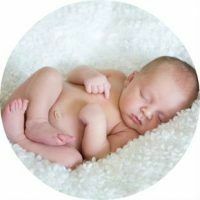
For more than half a century, doctors have used the Apgar evaluation scale to describe the health of newborn children. This scale was introduced by American professor-anaesthesiologist V. Apgar, she offered to assess the state of health of the baby by the first minutes of his life, using a 10-point system and 5 criteria.
The table of characteristics of newborns
The parameters of a newborn on the Apgar scale are only 5, all of them are called the first letters of the surname of their creator:
A ( activity) - muscle tone, baby's vigor;
P ( pulse) - palpitation;
G ( grimace) - the presence of unconditioned reflexes;
A ( appearance) - the color of the skin;
R ( respiration) - respiratory capabilities.
For each criterion a child can receive from 0 to 2 points.
The evaluation of the newborn is carried out according to the following criteria:
| Criterion | Points | ||
|---|---|---|---|
| 2 | 1 | 0 | |
| Heart rate | Over 100 beats per minute | Less than 100 beats per minute | None |
| Respiration | Rhythmic 40-45 respiratory movements per minute, baby loudly screams | Cry weak, breathdelayed and irregular | None |
| Muscle tone | Active movements | Decreased, limbs bent | None |
| Reflex excitability | Movement, cough, cry | Grimasa or motion | No response to irritants |
| Shade of skin | Pink | Body pink, blue extremities | Blue or white |
The newborn test on the Apgar scale is performed on the first and fifth minute of the baby's life in the ectopic environment, the results are compared, and the total figure is displayed,which is two numbers separated by a fraction.
The first value is the number of balls that the child received in the first minute of life, and the second( after the fraction) is the score in the fifth minute. It looks something like this: 7/10, 5/9, 9/9.That is, in a few minutes of adaptation or urgent actions of doctors, even the weakest child can significantly increase his first indicator.
Degrees of evaluation of newborns on Apgar scale:
- Less than 2 points of - the heart of the baby does not beat, it does not breathe, the skin covers are cyanotic, the limbs do not react to external stimuli. This baby needs urgent resuscitation.
- 3-4 points - average deviations, there may be some criteria, for example, reflexes, or the skin of the baby is cyanotic, which indicates acute fetal hypoxia.
- 5-6 points - small deviations, for example, the kid can not shout loudly, but simply sob.
- More than 7 points is a good indicator, the child is normal and does not need to be monitored and resuscitated.
